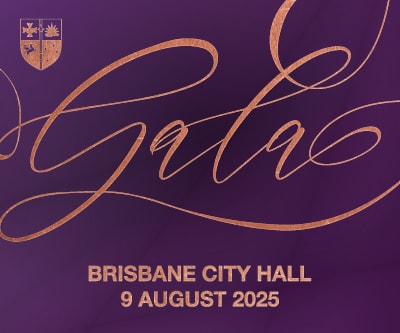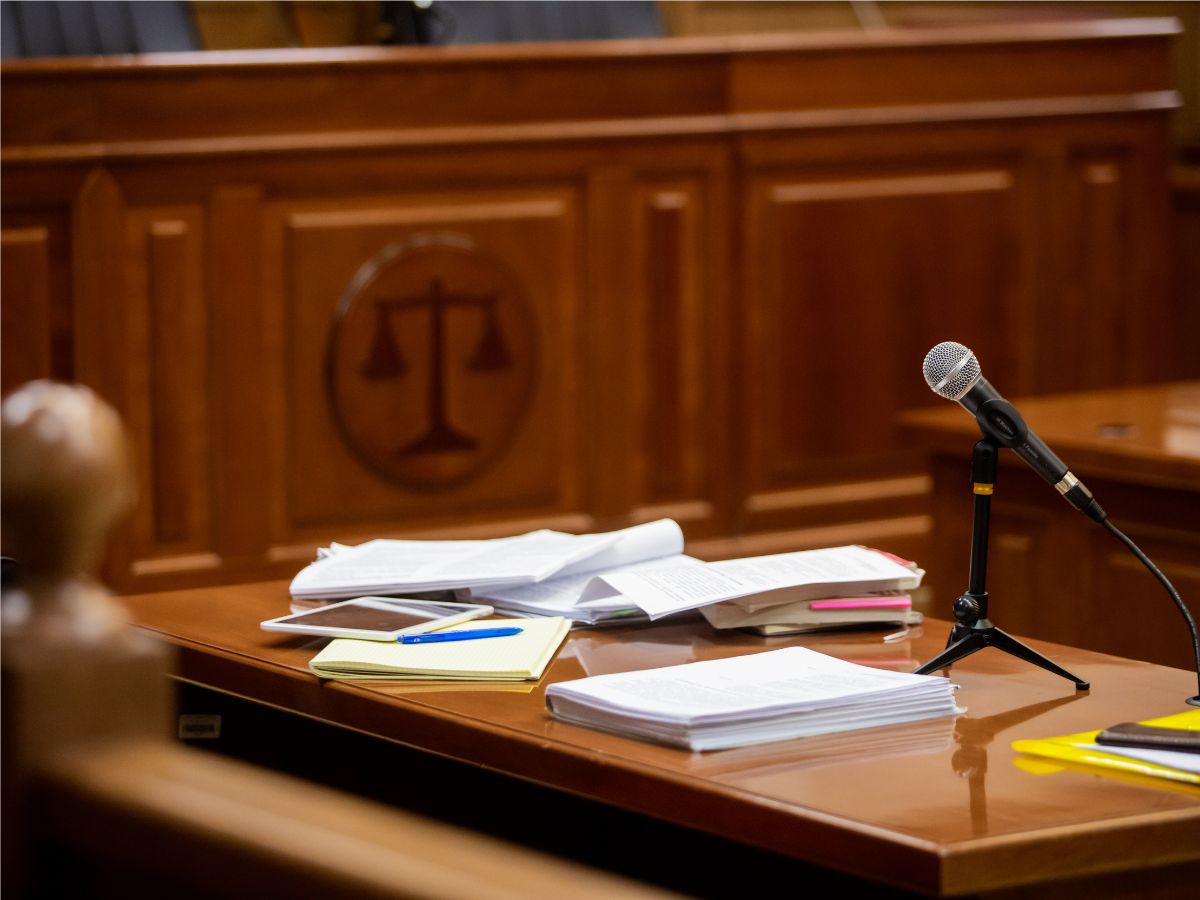Ever wondered what a Magistrate is thinking when you’re appearing before them? Well, it’s time to find out! His Honour Deputy Chief Magistrate Gett very kindly shared his perspective of the advocacy occurring in the Brisbane Magistrates Court.
In fact, His Honour shared so much wisdom that we’re making this a two-part series. Part One will focus on court etiquette and callovers, while Part Two will focus on more substantive listings like bail applications and sentences.
It’s rare to hear feedback from the bench, so grab a pen and take note of His Honour’s hottest advocacy tips!
Court Etiquette
For a law clerk or freshly-admitted solicitor, having to appear in Court can be incredibly daunting. Many are thrown in the deep end without much guidance as to Court etiquette or procedure, which is often easily spotted by the bench.
The good news is that learning Court etiquette doesn’t require a law degree, and you can quickly get across what is expected by the bench in terms of how you should conduct yourself. Here are some quick-fire tips from His Honour on the point of etiquette:
- Pay attention to visual cues and speak at a pace that doesn’t overwhelm the Magistrate. If you are announcing your appearance, watch the Magistrate to see if they are ready to hear your name, then the firm you’re appearing for. If you have a complicated name, the Magistrate might not be able to absorb that along with your initials and firm if you say it quickly, so be mindful of your pace.
- Listen carefully to what the Magistrate is asking you, and don’t talk over the top of them.
- Don’t fiddle or fidget – it can be very distracting – and don’t click your pen. That’s a pet hate for a few Magistrates!
- Be polite to your opponent and listen to what they are saying too.
- Don’t presuppose an outcome. Provide the Magistrate with options as to how to proceed, and submit on which option you prefer.
- Don’t read from scripts.
- Be confident enough to admit what you don’t know, while still offering a solution.
- If you finish a matter, wait for the next matter to be called, unless the Magistrate says you’re excused.
- Defer to seniority, but if you’re a law clerk and really need to be somewhere else, you can let the DPP or the police know, and the Magistrate might allow you to interpose your matter.
- Apologise where you’ve made a mistake. If you made a clear error, and you know you made a clear error, you should apologise. Or if you need to correct yourself, it’s more than appropriate to say, “I didn’t want to mislead Your Honour, so I should correct something I said earlier.”
Becoming familiar with how a Court operates takes time, and His Honour says the best way to learn is to listen and observe.
The silver lining of being last in the line of seniority is that you get to spend hours watching the proceedings… noticing how the Magistrate hears a matter, what kind of questions they ask, and how they react to submissions made from the bar table.
“When you’re sitting at the back [of the courtroom], it’s a really good idea to listen carefully… You want to hear what the Magistrate is saying and pick up on their cues, because you’ll learn a lot about what concerns a particular Magistrate or why they focus in on certain things.”
“A Magistrate generally will have a fairly formulaic application of the way they do things in big callovers, especially if they’re regularly sitting there.”
What also comes as a result of observing the proceedings is identifying which practitioners are strong advocates, and His Honour encourages clerks and newly-admitted practitioners to introduce themselves and ask for guidance.
“You want to model yourselves on more experienced practitioners. If you come from a small firm, ask other practitioners, What are some tips?”
“When you see particularly good advocates in callovers, you’ll see how efficient they are.”
Callovers
A callover is where a Court hears numerous matters of a certain kind in one day, with a view to obtaining an update on their progress. There are numerous callovers in the Brisbane Magistrates Court: the committal callover, summary callover, traffic callover, sexual assault offence callover, and DNA callover, to name a few. Each callover has its own purpose, and His Honour says it is essential for clerks and practitioners to understand what that purpose is before appearing.
“Learning, What is the objective of this callover? This callover is the triage: turning matters into hearings or sentences. Or, this callover is assigned to do this because of this practice direction.”
“Know the practice directions… If I was a law clerk, I’d be investing in some device where I’d have the practice directions at my fingertips.”
Usually, the Magistrates presiding in the callover is under pressure to hear close to 100 matters in a day. For this reason, His Honour says efficiency is the most important thing to bear in mind when appearing in a callover.
“We’re looking for efficiency. That’s the biggest thing… It’s important to be direct and to the point, and to have prepared answers of likely questions. Obviously, you’re only as good as your instructions, but preparation means having appropriate instructions.”
“When you communicate, the first thing you need to say is what you want, and what’s happening with the matter.”
“The number one thing you need to really focus on for callovers is: how has the matter progressed, and how will it progress?”
For the prickly matters that have been frequent fliers in the callovers, His Honour says it’s important to know the history of those matters and succinctly indicate to the Court that it has some history.
“Know the history of the matter. When a person comes before the Court and says, Look, this matter’s been going for one year. I immediately know what the file is about. Or if they say, Your Honour, I’m quite aware this matter’s been going on for six months, it immediately frames for the Magistrate what they’re looking for.”
Perhaps the most daunting thing for those new to appearing in the courtroom is the dreaded questions from the bench, but His Honour says they’re not to be feared, and there are ways to prepare for them.
“If you’re asked to appear on a matter, know how many charges there are if it’s a criminal matter. To become more advanced, you might say to whoever’s giving you the instructions, Do they have any matters elsewhere? because the Magistrate may just happen to have more coming.”
“Asking whether there have been charges coming from various areas, because Magistrates might say, This matter’s actually from Redcliffe, should it go back to Redcliffe?”
“Knowing whether it is a matter that must proceed on indictment. Magistrates might see an unusual section and go, Should this be in this callover or not?”
When you are appearing on a matter where another solicitor at your firm has carriage, the reality is that you won’t know everything there is to know about the matter. Sometimes the bench will ask questions you don’t know the answer to, and if you’re a law clerk, they might request that your principal appear.
His Honour emphasised that you are only as good as your instructions, and sometimes in order for a Magistrate to do their job, they need information directly from the solicitor with carriage. Being asked to send your principal over to appear doesn’t mean you’ve done a bad job, it just means the Magistrate has questions that you can’t answer.
“If the matter is such that the Magistrate doesn’t want a law clerk there and they want something more substantive, that’s within their discretion. Yes, they can refuse to give leave to appear before the Court.”
“Don’t take it personally. It can seem personal, but they’re not trying to denigrate you. They just want a better level of engagement with someone more familiar with the file.”
In a nutshell, if you are courteous, observe what is occurring in the courtroom, and prepare to the best of your ability, you will be successful appearing in the callovers. Lastly, making an effort to understand the ‘why’ behind your instructions will only further your confidence and build your knowledge about the matter, so don’t be afraid to ask questions when you have them!
Next time, His Honour will share his advice for solicitors appearing in sentences and bail applications, so keep an eye out for Part Two!

